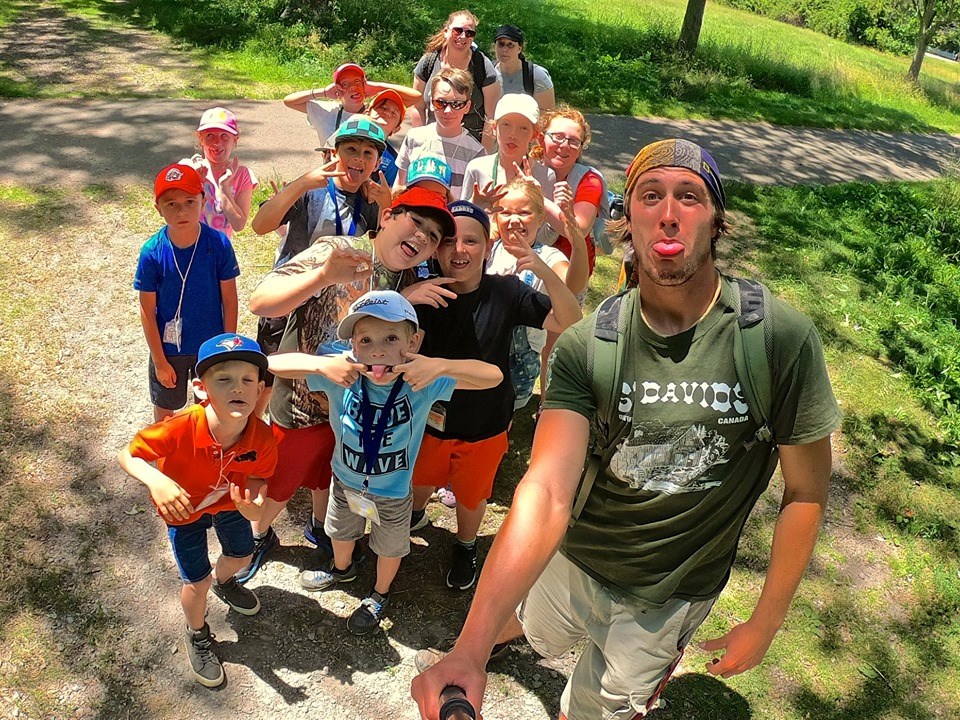
Since the young and impressively determined Greta Thunberg made her speech at the UN, there has been a wake of climate change protests, walk-outs, and events around the world. In terms of climate change awareness, I don’t believe there’s been an event like it yet in terms of how international and forthright it was. We even had a peaceful movement right in downtown NOTL. Amazing.
That some companies paid their employees to leave work and participate is a powerful sign there was a message to be sent, and people are just starting to really wake up to what that message is.
And we arrive to the classic question — now what?
The optimist views the glass as half full, and the pessimist sees the glass half empty. However, at the end of the day, only the realist is right. So I want to ask an honest question in this week’s article.
Do we realistically think that the recent climate strikes are going to have a noticeable and meaningful result anytime soon?
Will there be effects that we observe sooner rather than later, perhaps in the form of major government or corporate announcements? Will a government boldly bust the status quo and create new laws or regulation that puts the climate in first?
Your house is your environment. Once we step out the front door, the world we live in becomes our environment. This is called the biosphere — the area of our planet, its sky, and its innards where life can actually live. That makes the biosphere our big environment, but it’s not so big anymore when you consider how many humans saturate it, 7.5 billion of us, divided in pockets and clusters, chewing away at our natural resources on this marble called Earth. The marble is changing colour, as we can see from satellite images, or even a quick drive around Niagara.
Climate affects the health and function of our biosphere, which puts food on our plates and keeps us relatively safe from nature’s more formidable forces.
Therefore, when we put climate first, we put society first.
I liked Thunberg’s direct blame approach at the UN assembly. It’s not cynical campfire conversation to say that there’s a top 1 per cent that essentially runs the world — she was standing in front of many of them. These are your government leaders, lobbyists, and humongous corporations. These parties are intertwined and feed each other more than they feed the rest. It’s no wonder our environment and climate change crisis has been neglected for so long.
While we our paying our bills, feeding mouths, and working down at the ground level, we really do depend on those powers to make big changes. We’re busy and make enough money to get by. This is what Thunberg was addressing on the world stage — all of those powerful adults had an opportunity to listen, but did they? Did they really listen? Did anyone listen to our protests in Niagara? Listening is one thing, but proof of listening comes with action.
We’ve all been in a situation in life where we’ve heard someone else’s perspective on an issue, and then we had the time and power to sit with that knowledge and do (or not do) something with it. My fear is that Thunberg’s speech was so perfectly timed, it got such good coverage, on news and social media alike; it really couldn’t have been bigger and better, so how will we ever get such a pivotal conversation on the world stage again?
In our hectic world of information-sharing and pace of life, I fear this event will just be smothered by the next news story or mindless YouTube fad, or the politicians who even half-listened to her just become too preoccupied again. I’m fired up, and quite frankly, I’ve been frustrated by the general inaction of it all too. I’ve been in the guts of how government and money trump our climate right here in Niagara. That is an ugly arena to play in, because it’s frustrating when everyone in the room knows what is wrong, and nothing gets done.
I personally was a huge fan of how Thunberg delivered a very passionate, raw message. I teared up. I felt the pain of the bigger picture, as I do and think about every day I work in my field.
Here’s a report from ground level in Niagara, from someone who is outdoors seven days a week and usually with kids: we’re not doing nearly enough, and young people have no idea what’s coming in terms of the climate-related challenges they will have to face when we’re done and gone.
I suppose it is up to us and the Greta Thunbergs of the world to keep the pressure on the crew at the top, and to keep reminding them to listen. I think we’re going to have to get edgier and a little more creative with what it takes to make them listen for real.